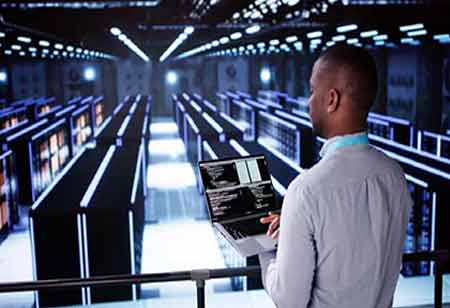THANK YOU FOR SUBSCRIBING

Revolutionizing Construction: The Marvels of Modular Construction
Ivan Bevilacqua, Project Leader Control Italia, Impresa Pizzarotti & C. S.p.A.

 Ivan Bevilacqua, Project Leader Control Italia, Impresa Pizzarotti & C. S.p.A.
Ivan Bevilacqua, Project Leader Control Italia, Impresa Pizzarotti & C. S.p.A.Ivan Bevilacqua, a Smart Infrastructures expert with an MBA and IPMA certification, highlights a career characterized by adaptable leadership in Civil Engineering. His education includes an International MBA from Business School POLIMI - Milan and a Master Degree in Civil Engineering from University La Sapienza - Rome.
As the Project Leader Control Italia at Impresa Pizzarotti SpA in Parma - Italy, Ivan oversees projects in maintenance, digitalization, IoT, technological integration, energy efficiency, and AI/ML. Previously, he worked as Site Manger on challenging projects such as the High Speed Third Giovi Rail Crossing in Genoa.
Ivan's passion for streamlining production processes is evident in his research. With a proactive mindset, he remains focused on continuous learning and embraces change in the dynamic field of Smart Infrastructures.
In the constantly evolving field of construction, modular construction is emerging as an innovation that revolutionizes the industry. This method involves producing prefabricated components in a factory and assembling them on-site, offering numerous advantages in efficiency, quality, and sustainability. This article explores modular construction’s principles, benefits, and advancements, highlighting a future where this approach may become the standard.
Modular construction involves creating prefabricated components, called ‘modules,’ ranging from small residential units to large commercial structures. These modules are crafted in controlled environments, reducing the impact of weather conditions and enhancing construction precision.
Modular construction is revolutionizing the construction industry, with applications ranging from small residential units to large commercial and industrial complexes. Modular units typically include structural and functional elements such as walls, floors, ceilings, and sanitary fixtures. However, modular construction also encompasses advanced solutions, such as fully furnished residential units designed for immediate occupancy.
Evident Advantages
Modular construction has numerous advantages. Firstly, it is highly efficient in completing projects due to a significant portion of the work being done in a controlled factory environment, reducing on-site construction times. Additionally, constructing modules in dedicated facilities allows for ongoing modernization and enhanced efficiency in these plants.
“Modular construction involves creating prefabricated components, called ‘modules,’ ranging from small residential units to large commercial structures. These modules are crafted in controlled environments, reducing the impact of weather conditions and enhancing construction precision”
Secondly, factory production ensures consistent quality control. This enables uniformly applying high standards to each module, reducing errors and ensuring that every component aligns with the project’s unique requirements.
Thirdly, modular construction actively contributes to environmental sustainability. Factory production minimizes waste and resource consumption, while the prospect of disassembling and reusing modules in the future helps to reduce construction waste. Finally, modularity offers exceptional design flexibility. Customizing modules to meet a client’s specific requirements allows for creating entirely distinctive buildings tailored to individual preferences and needs.
Additionally, scalability benefits become increasingly evident as the number of modular elements increases. This versatile approach can be applied to various projects, ranging from small residential to large commercial complexes.
Recent Innovations
Over the years, modular construction has continued to evolve, integrating recent technologies, materials, and methodologies that drive innovation in the field. Among the latest trends in modular construction, we find three huge innovations:
Smart Modular Buildings represent a groundbreaking evolution in construction, marked by integrating smart technologies within their modules. These “smart” buildings can continuously monitor and autonomously adjust the indoor environment to enhance comfort and maximize energy efficiency. In the realm of Smart Modular Buildings, this potential marks a significant shift in how we experience and occupy our homes and workplaces, providing both convenience and substantial benefits like energy savings, sustainability, and an enhanced quality of life.
Advanced Materials involves utilizing cutting-edge materials, such as high-performance composites, to enhance the strength and durability of modules. This advancement contributes to constructing more robust and long-lasting buildings, improving their overall quality.
Urban Regeneration, where modular construction plays a pivotal role in rejuvenating disused areas, transforms them into vibrant and sustainable spaces that benefit communities and the environment. This is part of the broader trend of sustainable urban development.
Pizzarotti Real Case
Impresa Pizzarotti, one of the most important Italian EPC contractors in the field of infrastructures and civil works, can boast among its assets some prefabrication plants at the service of construction sites spread throughout Italy and the world. In fact, prefabrication finds wide application in the world of railway infrastructure, especially in the construction of underground works. The most exemplary case is that of the RFI Florence—High-speed Railway Junction construction site, a strategic project for the national rail network, where certain technical and design expedients will lead to a significant reduction in the consumption of resources from an overall perspective of greater sustainability for the entire supply chain.
In particular, the decision to line the tunnels with rings of prefabricated segments through TBM excavation has enabled extensive utilization of welded reinforcement cages. This approach results in enhanced assembly speed, overall optimization of raw materials and resources, reduced margins of error during execution, and improved control over logistics and storage areas.
The entire construction process is thus more automated, efficient, sustainable, and cost-effective.
Conclusion
Modular construction is the future of the building, offering an efficient, sustainable, and high-quality solution. Ongoing innovation in the sector is resulting in increasingly advanced and customizable buildings. As this technology becomes more widespread and accessible, the construction industry is poised for meaningful change. Modular construction is here to stay, and its impact will become increasingly evident in the future construction industry.
Read Also
Where Safety Really Lives: Between the Plan and the Jobsite
Accelerating the Shift Toward Data-Led Construction Excellence
Building Projects Through People, Planning and Culture
Innovating the Future of Construction: Insights From Power Design's Leadership
Advancing Construction with Technology and Care
Technology as a Strategic Advantage in Preconstruction

 Copyright © 2026 All Rights Reserved | by:
Copyright © 2026 All Rights Reserved | by: Construction Tech Review
| Subscribe | About us | Sitemap| Editorial Policy| Feedback Policy










